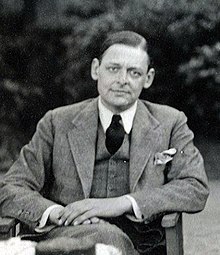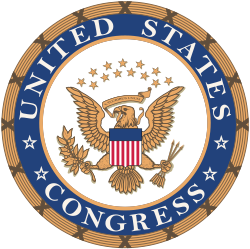1934 ⟶ T.S. Eliot's Caricature of Fascists in "The Rock"
In his 1934 pageant play The Rock, T.S. Eliot distances hims...Year
1933
1934
1939
1996
🗣️ T.S. Eliot's Anti-Jewish Remarks in Lectures
In a series of lectures delivered at the University of Virginia in 1933, published under the title After Strange Gods: A Primer of Modern Heresy (1934), T.S. Eliot wrote of societal tradition and coherence, "What is still more important is unity of religious background, and reasons of race and religion combine to make any large number of free-thinking Jews undesirable." Eliot never re-published this book/lecture.:⟶

AntisemitismIdeologyIntellectualsT.S. EliotHeresyCultural homogeneityModernism
 United States
United States🎭 T.S. Eliot's Caricature of Fascists in "The Rock"
In his 1934 pageant play The Rock, T.S. Eliot distances himself from Fascist movements of the thirties by caricaturing Oswald Mosley's Blackshirts, who 'firmly refuse/ To descend to palaver with anthropoid Jews'. The "new evangels" of totalitarianism are presented as antithetical to the spirit of Christianity.⟶

AntisemitismIdeologyT.S. EliotFascismBlackshirtsLiterary criticismCaricature
 United Kingdom
United Kingdom📰 The Franklin Prophecy's First Appearance
The first appearance of The Franklin Prophecy on the pages of William Dudley Pelley's pro-Nazi weekly magazine Liberation. According to the US Congress report:⟶

AntisemitismIdeologyPropagandaConspiracy theoryWilliam Dudley PelleyPro-Nazi
 United States
United States✍️ Ezra Pound Returns to Italy and Writes Antisemitic Material
In this year Ezra Pound returned to Italy from the States and began writing antisemitic material for Italian newspapers. He wrote to James Laughlin that Roosevelt represented Jewry, and signed the letter with "Heil Hitler".⟶

AntisemitismEzra PoundPropagandaItalyFascismWorld War IIIdeologyCollaboration
 Italy
Italy United States
United States✍️ T.S. Eliot Accused of Antisemitism
The depiction of Jews in some of T.S. Eliot's poems has led several critics to accuse him of anti-Semitism. This case has been presented most forcefully in a study by Anthony Julius: T. S. Eliot, Anti-Semitism, and Literary Form (1996). In "Gerontion", Eliot writes, in the voice of the poem's elderly narrator, "And the jew squats on the window sill, the owner / Spawned in some estaminet of Antwerp." Another well-known example appears in the poem, "Burbank with a Baedeker: Bleistein with a Cigar". In this poem, Eliot wrote, "The rats are underneath the piles. / The jew is underneath the lot. / Money in furs." Interpreting the line as an indirect comparison of Jews to rats, Julius writes, "The anti-Semitism is unmistakable. It reaches out like a clear signal to the reader." Julius's viewpoint has been supported by literary critics such as Harold Bloom, Christopher Ricks, George Steiner, Tom Paulin and James Fenton.⟶

LiteratureT.S. EliotAntisemitismLiterary CriticismIdeology20th CenturyPoetry